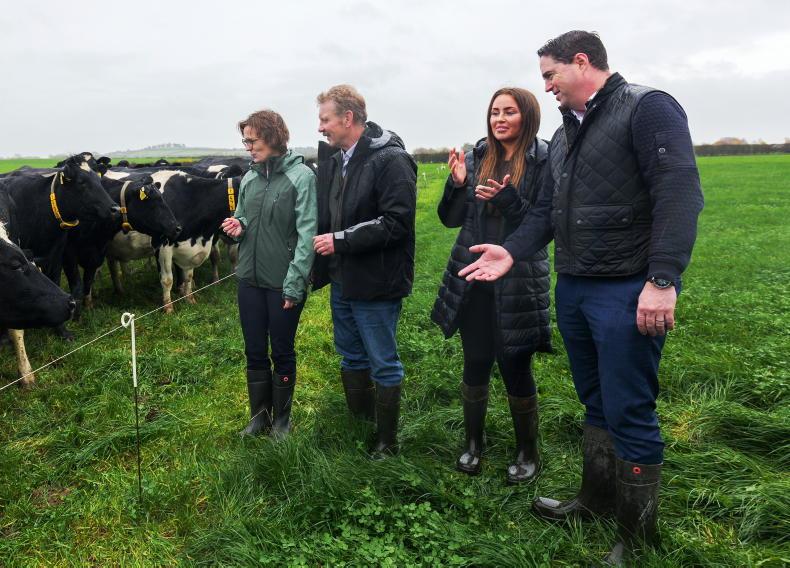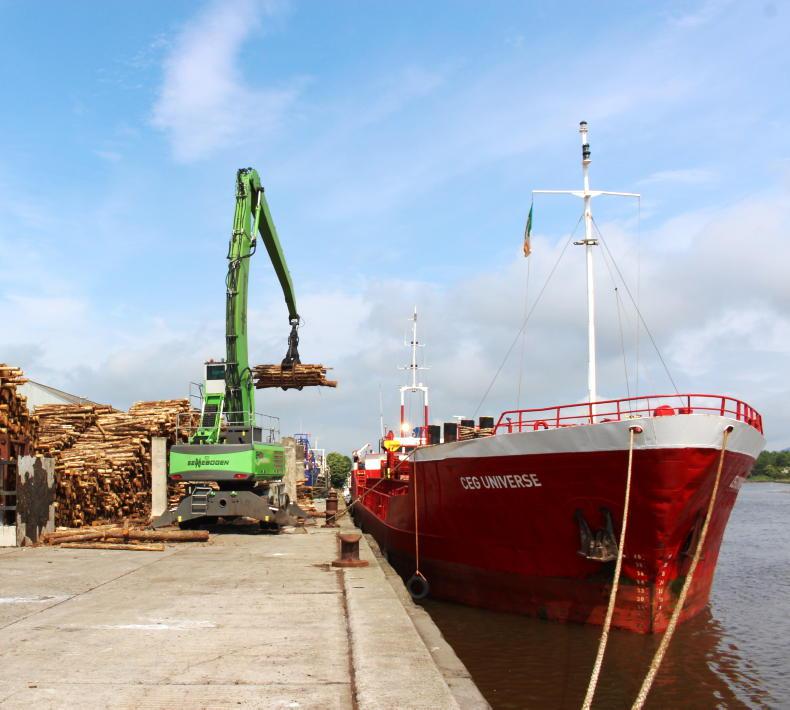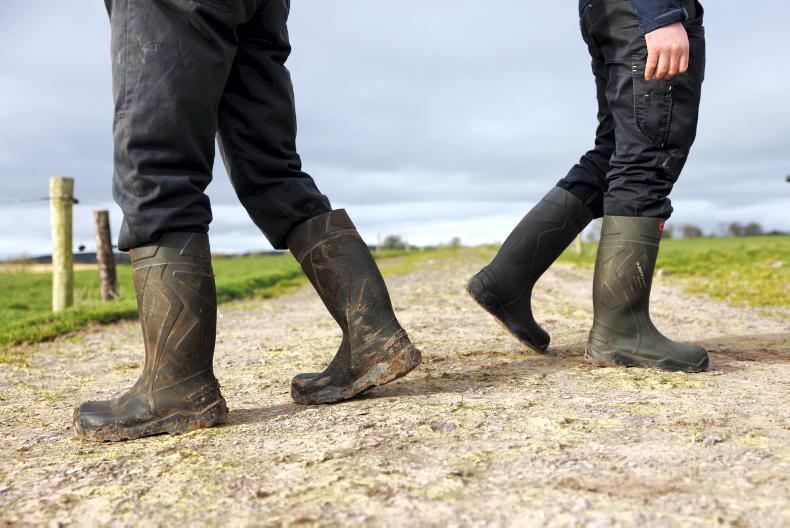and is generally purchased or sold in either of two ways: by auction or by private treaty.
Auction
When property is sold by auction a contract comes into being when “the hammer falls”.
The buyer has to sign the contract at this point and pay over a deposit – usually 10% of the purchase price which is generally non-refundable.
The buyer is obliged to complete the purchase, usually within four weeks of the auction date.
There are a number of matters which a prospective buyer should address in advance of the auction.
Obtain a copy of the contract and have his/her solicitor check the special conditions and also review the title documents to ensure there is good title to the property. Inspect the property pre-auction and engage an engineer/surveyor to check that what is being sold according to the map/sales brochure corresponds with what is on the ground as there is generally no comeback once the contract is signed; the property is sold as is.Obtain loan approval from a bank/lending institution before the auction if you need to borrow to pay for the purchase.Carry out planning searches to see if the land is subject to any planning decisions and whether it is in a special area of conservation (SAC), flood plain or whether there are national monuments on it, etc.Private treaty
In a “private treaty” sale, the payment of an initial “booking deposit” neither obliges nor entitles the buyer to complete the purchase nor does it impose any such obligations on the seller.
The seller, in other words, remains free to sell to somebody else until the contract has been signed by both parties and exchanged.
The legal process has changed since 1 January 2019. There is a new-format contract for sale issued by the Law Society of Ireland. Under this new system, the investigation of title and most queries (through replies to requisitions) will be raised before the contract is entered into. This should speed up the sales/purchase process and better facilitate transactions involving banks.
If money is being borrowed to fund the purchase, the bank appoints it own solicitors to ensure that they get good title in the event that it has to sell the property to recover the loan.
The solicitor checks that everything is in place before the loan is drawn down
The legal documents transferring the property from the seller to the purchaser are normally sent to the bank’s solicitor on trust before the sale is completed.
The solicitor checks that everything is in place before the loan is drawn down.The borrower generally also has to assign a mortgage protection policy and have the bank’s interest noted on the insurance before the funds can be drawn down.
The bank’s solicitor normally stamps the deed of transfer and registers the bank’s charge on the property in the Land Registry.
Legal costs and tax
The borrower has to pay the cost of his/her own solicitor and normally the cost of the bank’s solicitor.
This tends to be €2,000 plus vat if the bank’s solicitor is carrying out an investigation on title or €1,000 plus vat if the purchaser’s solicitor is certifying the title.
There will also be the cost of the purchaser’s own solicitor for acting in the purchase and acting for the borrower in the mortgage.
Some solicitors will charge a flat fee while others will charge a percentage of the land price, typically 1% to 2%.
A person should budget for anything from €1,500 to €3,000 plus vat plus outlay.
VAT is 23% on professional fees and outlay covers land registry fees, stamp duty, etc.
Stamp duty can vary depending on what relief can be claimed as follows:
The rate of stamp duty on residential property currently is 1% and on non-residential property to include agricultural land it is 7.5%.If the land is purchased by a young trained farmer, ie under 35 years at the date of purchase, who has agricultural qualifications equivalent to the Green Cert and undertakes to farm the land for five years from the date of transfer, they qualify for a stamp duty exemption, ie 0%.If the transfer of land is between blood relatives and the person receiving the land undertakes to either farm the land for six years or lease to a farmer for six years, they qualify for a stamp duty rate of 1% under consanguinity relief. If land is purchased or sold or swapped within 24 months of another purchase or sale or swap and the overall transactions result in a reduction of distance between the parcels, the transaction may qualify for consolidation relief which results in stamp duty at 1% on the difference between the purchase and sale price. Once the money has been paid, the transaction is normally complete and, at that point, the person is entitled to be registered as owner. The deed is then normally stamped and then lodged to the Land Registry or Registry of Deeds.
It can take a couple of weeks to a couple of months for the registration to be processed but this does not normally affect the ability of the person to deal with the land until the registration is complete.

The registration of title system (Land Registry) provides State-guaranteed title to the property.
It is a State institution which registers and guarantees title to the property.
The Land Registry folio shows the name of the current owner of the land.
Most land in Ireland is registered in the Land Registry and you do not need to look behind the folio to prove title.
The registration of deeds system (Registry of Deeds) records the existence of deeds and conveyances. In the case of unregistered title, you need to be able to prove you own it by producing the original title deeds.
It can take a couple of weeks to a couple of months for the registration to be processed
The ownership is provided by the production of a chain of deeds tracing ownership from a sale at least 15 years before. There must, ultimately, be a deed showing a transfer of the property concerned to the current owner.
There is no state guarantee of title or ownership under this system.
The integrity and priority of the chain of deeds is verified by the registration of the deed in the registry of deeds. It is intended over time that all property will come to be registered in the Land Registry.
Disclaimer: The information in this article is intended as a general guide only. While every care is taken to ensure accuracy of information contained in this article, Aisling Meehan, Agricultural Solicitors does not accept responsibility for errors or omissions howsoever arising. E-mail aisling@agrisolicitors.ie
Read more
Legal query: who is responsible for a fallen tree?
Legal issues involved in solar farm development
and is generally purchased or sold in either of two ways: by auction or by private treaty.
Auction
When property is sold by auction a contract comes into being when “the hammer falls”.
The buyer has to sign the contract at this point and pay over a deposit – usually 10% of the purchase price which is generally non-refundable.
The buyer is obliged to complete the purchase, usually within four weeks of the auction date.
There are a number of matters which a prospective buyer should address in advance of the auction.
Obtain a copy of the contract and have his/her solicitor check the special conditions and also review the title documents to ensure there is good title to the property. Inspect the property pre-auction and engage an engineer/surveyor to check that what is being sold according to the map/sales brochure corresponds with what is on the ground as there is generally no comeback once the contract is signed; the property is sold as is.Obtain loan approval from a bank/lending institution before the auction if you need to borrow to pay for the purchase.Carry out planning searches to see if the land is subject to any planning decisions and whether it is in a special area of conservation (SAC), flood plain or whether there are national monuments on it, etc.Private treaty
In a “private treaty” sale, the payment of an initial “booking deposit” neither obliges nor entitles the buyer to complete the purchase nor does it impose any such obligations on the seller.
The seller, in other words, remains free to sell to somebody else until the contract has been signed by both parties and exchanged.
The legal process has changed since 1 January 2019. There is a new-format contract for sale issued by the Law Society of Ireland. Under this new system, the investigation of title and most queries (through replies to requisitions) will be raised before the contract is entered into. This should speed up the sales/purchase process and better facilitate transactions involving banks.
If money is being borrowed to fund the purchase, the bank appoints it own solicitors to ensure that they get good title in the event that it has to sell the property to recover the loan.
The solicitor checks that everything is in place before the loan is drawn down
The legal documents transferring the property from the seller to the purchaser are normally sent to the bank’s solicitor on trust before the sale is completed.
The solicitor checks that everything is in place before the loan is drawn down.The borrower generally also has to assign a mortgage protection policy and have the bank’s interest noted on the insurance before the funds can be drawn down.
The bank’s solicitor normally stamps the deed of transfer and registers the bank’s charge on the property in the Land Registry.
Legal costs and tax
The borrower has to pay the cost of his/her own solicitor and normally the cost of the bank’s solicitor.
This tends to be €2,000 plus vat if the bank’s solicitor is carrying out an investigation on title or €1,000 plus vat if the purchaser’s solicitor is certifying the title.
There will also be the cost of the purchaser’s own solicitor for acting in the purchase and acting for the borrower in the mortgage.
Some solicitors will charge a flat fee while others will charge a percentage of the land price, typically 1% to 2%.
A person should budget for anything from €1,500 to €3,000 plus vat plus outlay.
VAT is 23% on professional fees and outlay covers land registry fees, stamp duty, etc.
Stamp duty can vary depending on what relief can be claimed as follows:
The rate of stamp duty on residential property currently is 1% and on non-residential property to include agricultural land it is 7.5%.If the land is purchased by a young trained farmer, ie under 35 years at the date of purchase, who has agricultural qualifications equivalent to the Green Cert and undertakes to farm the land for five years from the date of transfer, they qualify for a stamp duty exemption, ie 0%.If the transfer of land is between blood relatives and the person receiving the land undertakes to either farm the land for six years or lease to a farmer for six years, they qualify for a stamp duty rate of 1% under consanguinity relief. If land is purchased or sold or swapped within 24 months of another purchase or sale or swap and the overall transactions result in a reduction of distance between the parcels, the transaction may qualify for consolidation relief which results in stamp duty at 1% on the difference between the purchase and sale price. Once the money has been paid, the transaction is normally complete and, at that point, the person is entitled to be registered as owner. The deed is then normally stamped and then lodged to the Land Registry or Registry of Deeds.
It can take a couple of weeks to a couple of months for the registration to be processed but this does not normally affect the ability of the person to deal with the land until the registration is complete.

The registration of title system (Land Registry) provides State-guaranteed title to the property.
It is a State institution which registers and guarantees title to the property.
The Land Registry folio shows the name of the current owner of the land.
Most land in Ireland is registered in the Land Registry and you do not need to look behind the folio to prove title.
The registration of deeds system (Registry of Deeds) records the existence of deeds and conveyances. In the case of unregistered title, you need to be able to prove you own it by producing the original title deeds.
It can take a couple of weeks to a couple of months for the registration to be processed
The ownership is provided by the production of a chain of deeds tracing ownership from a sale at least 15 years before. There must, ultimately, be a deed showing a transfer of the property concerned to the current owner.
There is no state guarantee of title or ownership under this system.
The integrity and priority of the chain of deeds is verified by the registration of the deed in the registry of deeds. It is intended over time that all property will come to be registered in the Land Registry.
Disclaimer: The information in this article is intended as a general guide only. While every care is taken to ensure accuracy of information contained in this article, Aisling Meehan, Agricultural Solicitors does not accept responsibility for errors or omissions howsoever arising. E-mail aisling@agrisolicitors.ie
Read more
Legal query: who is responsible for a fallen tree?
Legal issues involved in solar farm development












SHARING OPTIONS